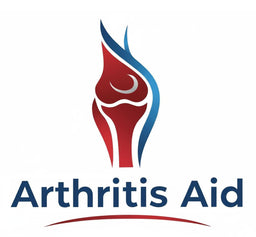Arthritis and sleep are closely connected. Inflammation, stiffness, pain, or stress may make sleeping as well as staying in bed a daily battle, and then poor sleep can exacerbate the signs of arthritis. Understanding this interaction is the key to halting the cycle. This guide will explain the impact of Arthritis on sleep and how to improve it so that your mornings don't feel as grueling.
How Arthritis Disrupts Sleep
1. Pain, stiffness, and flare-ups
Most arthritics have problems with either falling asleep or being unable to sustain sleep due to night pain flare. Research has documented that one out of five individuals with arthritis experiences difficulty in sleep.
Insomnia and restless sleep are common in rheumatoid arthritis, specifically with pain and limitation of mobility being the primary causes.
2. A vicious feedback loop
Sleeping in a bad way increases pain sensitivity, decreases the ability to cope, and can create more inflammation. A bad night could cause the next day to be more painful, and the next day is even more difficult. In the case of autoimmune arthritis, sleep absence can trigger inflammation throughout the body, which makes the condition more active.
3. Secondary disruptors
Other factors other than pain can disrupt your sleep:
-
The most common sleep disorders, which are more common among arthritis sufferers, are restless leg syndrome, sleep apnea, etc.
-
Mood, stress, and anxiety, which also come along with chronic pain and disrupt sleep onset.
-
Regular wake-ups caused by pain, having to change the position, or having to go to the restroom.
Due to the tendency of sleep problems in arthritis to be multi-factorial, treating a single dimension may not entirely resolve the problem.
Read more: Thumb Arthritis Test
How to Enhance Sleep Quality with Arthritis
1. Create a regular sleep routine
-
Wake up at the same time and sleep at the same time, even on the weekends.
-
Minimize daydreaming, especially in the afternoon.
-
At least 30-60 minutes before bedtime, switch screens off to assist the body in generating natural melatonin.
2. Time pain relief with a smart strategy
Find nonpharmacologic or medication relief that will ensure the pain is lessened when you lie down. For example, use heating therapy (a pad or warm bath) before bedtime in order to relax stiff joints or apply cold therapy when inflammation is active.
3. Gentle movement & stretching
Light, pain-free movement may also be performed earlier in the evening, e.g., light stretching or range-of-motion exercises, in order to reduce stiffness before sleep as well as to enable easier sleeping.
It is not a good idea to exercise a lot and then go to sleep, as this may stimulate adrenaline and disturb the process of sleeping.
4. Mind-body/relaxation methods
Among the things that may help one who is racing because of thoughts and reduce stress to be able to fall asleep are deep breathing, meditation, progressive muscle relaxation, or guided imagery.
5. Manage underlying sleep disorder
Talk to your doctor or other sleep specialist in case you have a suspicion of such conditions as sleep apnea or restless legs syndrome. All those issues may be treated, which may enhance sleep and reduce arthritis symptoms.
6. Keep a sleep journal
Monitor when you go to sleep, rise to pain levels, medications, and lifestyle patterns. There are patterns that often emerge linking actions to success in sleeping or failure.
Check out our collection of Arthritis tools here!
The Bottom Line
The impact of arthritis on sleep is unquestionable and often underestimated: pain, stiffness, medications, and emotional stress can consume sleep. However, with the assistance of certain interventions, you will be able to re-establish good sleep gradually. Sleep does not mean nothing to do; it is a part of how you care about your joints, your brain, and your power. Better sleep results in better days!



























